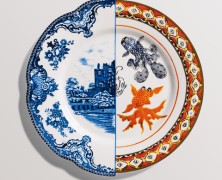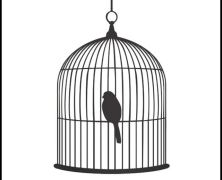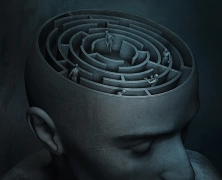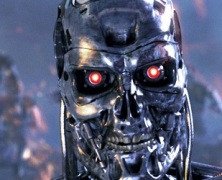 January
11
January
11
posted by Culture Decanted
The last few years have not been good ones for law enforcement and the Justice system. There is a growing perception that Justice is not what it once was: there is corruption, the law has been abused, inequality is rising and crime appears to go unpunished. A hypothesis expanded here, is that popular culture is framing the way that many in western cultures perceive the law, the legal profession and our law enforcers. If this is correct, is this inviting some to start to think of acting for justice outside of the law?
 December
13
December
13
posted by Culture Decanted
Much of 2014 has been dominated by stories of Justice, Law and Injustice. If popular culture is a reflection of society and culture, what do the changing storylines of law-and-crime suggest about how we feel about Justice? Do these stories influence the way that we see our own societies? This can be illustrated by looking at the structures of some of the more successful film and TV shows.
 November
18
November
18
posted by Culture Decanted
From an anthropological perspective, food is part of how we identify ourselves and also the cultures we belong to. Food structures our identities, social behaviour and frames our concepts of others. Food is one of the ways we most commonly experience foreign foods. What we don’t eat is as important to what we do in defining who we are. We can look at the similarities and differences between ‘east and western’ cuisines as an illustrative tension of formative cultural identity.
 October
19
October
19
posted by Culture Decanted
Food is central to the evolution of man and culture. Eating food performs a base nutritional function; it is its symbolic role in either supporting or differentiating individual, social and cultural identity that is more influential. We consume our identities through our food and drink choices. The changing nature of modern society is resulting to differences in what food communicates and how we use it to develop and express our identities.
 September
21
September
21
posted by Culture Decanted
Why are we taking the super out of the supernatural stories: just another postmodern symptom? There is a tendency of modern films and TV shows to recycle supernatural stories by finding secular or mundane explanations for their supernatural themes. This trend is driven by the continuing postmodern agenda to find rational explanations for everything and challenge existing meta-narratives in culture. To illustrate this, ten examples of dominant supernatural themes are explored as having secular explanations for their plots.
 September
13
September
13
posted by Culture Decanted
There is nothing that influences human behavour as strongly as the power of life and death. It is possible to create a semiotic model that conceptualize how we create meaning on the journey from the womb to the grave.
 September
07
September
07
posted by Culture Decanted
Emerging Metaphors for the Human Body Metaphors are the cognitive tools through which we understand ourselves and the world (Lakoff and Turner 1989: xi). One of the primary metaphoric resources is the human body. Probably, since we first became self-aware, we have been fascinated with our bodies: psychologically and culturally. “Man is the measure […]
 August
27
August
27
posted by Culture Decanted
A semiotic analysis of the birdcage as a cultural status symbol. Why is this symbol used so consistently by luxury and fashion brands? What is the history of the birdcage through to today? What are the psychological drivers that influence the engagement with the birdcage in society today? Since the birdcage is linked with fashion, what does this suggest about women and how they are framed in societal discourse?
 August
15
August
15
posted by Culture Decanted
Why are we no longer in love with our cities? We personify cities, give them human characteristics.
We create our identity from where we live. Are we projecting something, of how we see ourselves, onto our cities?
 July
31
July
31
posted by Culture Decanted
Why are we still a-maze-d by labyrinths? With a diverse range of permutations, the Maze is a symbol that has been with humanity since the pre-historic era. So pervasive is the labyrinth within human symbolic communication, it is impossible to think of a human era where it was not a deep structural metaphor […]
 July
14
July
14
posted by Culture Decanted
The Semiotics of the Doppelgänger: the Double in Popular Culture One of the themes from the last blog I wrote on ‘evil’, was the nature of how this is depicted in popular culture from a semiotic perspective. This started out with a Kantian perspective, that evil is something that all of us have the […]
 July
06
July
06
posted by Culture Decanted
What is evil? In the postmodern Western world, evil is something that has become almost robbed of its ability to horrify us. Increased global communication and knowledge inure our responsiveness with a daily news diet of ‘evils’. In entertainment, with many of the anti-heroes of TV being serial killers or sociopaths, we’re becoming increasingly desensitised […]
 June
21
June
21
posted by Culture Decanted
Our brains are changing size and we are getting stupider? It’s enough to give you a brain-ache. Do any search on the human brain today and there is a lot of contradictory information about what we know about it. Some believe it’s getting larger, others that it’s shrinking. We’re getting more intelligent or getting […]
 June
16
June
16
posted by Culture Decanted
ARE ROBOTS TAKING OVER THE WORLD? “Nothing is so painful to the human mind as a great and sudden change.”― Mary Shelley, Frankenstein In my last post, I was exploring why we are scared of the future, a fact that emerged is that there is no one word or phobia to cover ‘fear of […]
 June
13
June
13
posted by Culture Decanted
Why are we so negative about the future?: Future Part 2 “The future is like a dead wall or a thick mist hiding all objects from our view’ William Hazlitt, 1822 Cultural Metaphors of the Future One of the manifestations of the authenticity trend in society today is the cherry-picking what parts of […]
 June
11
June
11
posted by Culture Decanted
Why are we so scared of tomorrow? To paraphrase the British Prime Minister Harold Macmillan, ‘humankind has never had it so good’. Well it’s probably more accurate to say that in many ways our collective-cultures have never been so advanced, with the potential of helping so many. So why do we find western culture […]
 June
07
June
07
posted by Culture Decanted
What is a real carrot? About a week ago, I was speaking to a mum and the topic of shopping in supermarkets came up. It was a wide-ranging conversation and the benefits and concerns she expressed about shopping were similar to what other mums have talked about. In summary, supermarkets are convenient, good value and […]
 May
24
May
24
posted by Culture Decanted
“This is your last chance. After this, there is no turning back. You take the blue pill – the story ends, you wake up in your bed and believe whatever you want to believe. You take the red pill – you stay in Wonderland, and I show you how deep the rabbit hole goes. Remember, […]

















Recent Comments